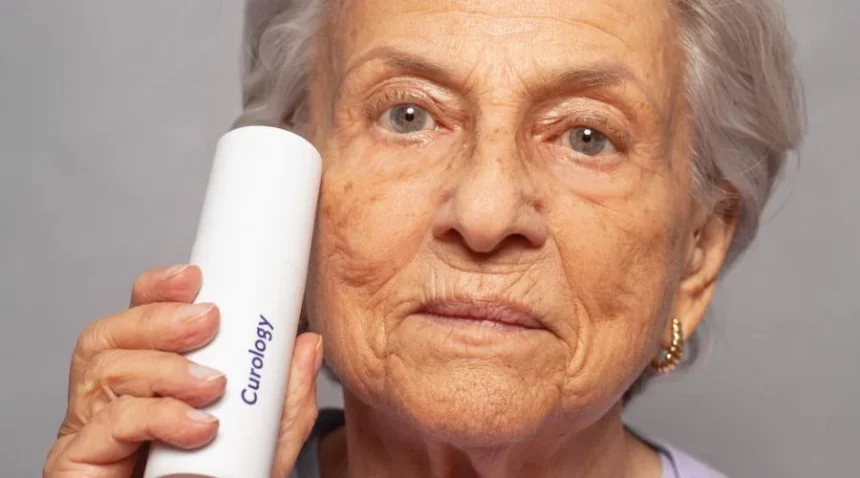As we age, our skin changes in a multitude of ways. Fine lines, wrinkles, and age spots are just a few of the visible signs of aging that can leave us feeling less confident in our appearance. In today’s beauty industry, anti-aging products promise to turn back the clock and restore a youthful glow to our skin. But how do these products really work? Is it just marketing hype, or is there science behind the claims? In this article, we will explore the science behind how anti-aging products work, including the key ingredients that are proven to be effective, and the mechanisms by which they work to combat the signs of aging. Whether you’re curious about the science behind your favorite anti-aging cream, or looking to invest in a new product to add to your skincare routine, join us as we dive into the fascinating world of anti-aging science.
The science behind aging
Before we delve into the science behind anti-aging products, it’s important to understand the science behind aging itself. Aging is a natural process that occurs in all living organisms, and it affects every aspect of our bodies, including our skin. As we age, our skin becomes thinner and less elastic, and it produces less oil, which can lead to dryness and itching. Additionally, exposure to the sun, pollution, and other environmental factors can cause damage to our skin cells, leading to the formation of wrinkles, fine lines, and age spots.
Scientists have identified several key factors that contribute to the aging process, including oxidative stress, inflammation, and the breakdown of collagen and elastin fibers in the skin. Oxidative stress occurs when our cells are exposed to harmful molecules called free radicals, which can damage our DNA and other cellular components. Inflammation is a natural response to injury or infection, but chronic inflammation can contribute to the aging process by damaging our cells and tissues. Finally, collagen and elastin fibers are essential components of our skin’s structure, providing strength and elasticity. As we age, these fibers break down, leading to sagging skin and wrinkles.
Types of anti-aging products and their claims
There are countless anti-aging products on the market today, each promising to reverse the signs of aging and restore a youthful glow to your skin. But how do these products really work, and what do they claim to do? Here are some of the most common types of anti-aging products and their claims:
- Moisturizers: Moisturizers are one of the most basic types of skincare products, and they are essential for keeping your skin hydrated and healthy. Anti-aging moisturizers typically contain ingredients that help to plump up the skin and reduce the appearance of fine lines and wrinkles.
- Serums: Serums are lightweight, fast-absorbing liquids that are designed to deliver a high concentration of active ingredients to your skin. Anti-aging serums typically contain powerful antioxidants, peptides, and other ingredients that help to repair and rejuvenate your skin.
- Retinoids: Retinoids are a class of vitamin A derivatives that are used to treat a variety of skin conditions, including acne, psoriasis, and wrinkles. Anti-aging retinoids work by increasing cell turnover and stimulating collagen production, resulting in smoother, firmer skin.
- Peptides: Peptides are short chains of amino acids that can penetrate the skin and stimulate collagen production. Anti-aging peptides are often included in serums and moisturizers, and they are thought to help reduce the appearance of fine lines and wrinkles.
- Acids: Alpha-hydroxy acids (AHAs) and beta-hydroxy acids (BHAs) are commonly used in anti-aging products to exfoliate the skin and reduce the appearance of fine lines and wrinkles. AHAs work by breaking down the bonds between dead skin cells, while BHAs penetrate the pores and help to unclog them.
Ingredients commonly used in anti-aging products and how they work
Now that we’ve covered the different types of anti-aging products and their claims, let’s take a closer look at some of the key ingredients that are commonly used in these products and how they work:
- Retinol: Retinol is a form of vitamin A that is used in many anti-aging products to stimulate collagen production and increase cell turnover. It works by binding to specific receptors on the skin cells, which activates a signaling pathway that leads to increased collagen production.
- Vitamin C: Vitamin C is a powerful antioxidant that can help to protect your skin from free radical damage. It also helps to stimulate collagen production and brighten your skin tone.
- Hyaluronic acid: Hyaluronic acid is a naturally occurring substance in our skin that helps to keep it hydrated and plump. As we age, our skin produces less hyaluronic acid, leading to dryness and wrinkles. Anti-aging products that contain hyaluronic acid can help to restore moisture to the skin and reduce the appearance of fine lines and wrinkles.
- Peptides: Peptides are short chains of amino acids that can penetrate the skin and stimulate collagen production. They work by signaling to the skin cells to produce more collagen, which can help to reduce the appearance of fine lines and wrinkles.
- Niacinamide: Niacinamide is a form of vitamin B3 that is used in many anti-aging products to improve skin texture and tone. It works by improving the skin’s barrier function and reducing inflammation, which can lead to smoother, more even-looking skin.
The role of antioxidants in anti-aging
Antioxidants are a crucial component of many anti-aging products, and for good reason. Antioxidants help to neutralize free radicals, which are harmful molecules that can damage our cells and contribute to the aging process. By protecting our skin from free radical damage, antioxidants can help to reduce the appearance of fine lines and wrinkles, and improve the overall health and vitality of our skin.
Some of the most commonly used antioxidants in anti-aging products include vitamins C and E, coenzyme Q10, and green tea extract. These antioxidants work by neutralizing free radicals and protecting our skin from environmental stressors like pollution and UV radiation.
The truth about collagen and elastin in anti-aging products
Collagen and elastin are two essential components of our skin’s structure, providing strength and elasticity. As we age, our skin produces less collagen and elastin, leading to sagging skin and wrinkles. Many anti-aging products claim to contain collagen and elastin, and to help restore these essential components to our skin. However, the truth is that collagen and elastin molecules are too large to penetrate the skin’s surface, so applying them topically is unlikely to have much effect.
Instead, anti-aging products that contain ingredients like retinol, peptides, and vitamin C can help to stimulate collagen production and improve the overall health and vitality of our skin.
The importance of sunscreen in anti-aging
One of the most important things you can do to prevent the signs of aging is to protect your skin from the sun. UV radiation from the sun can cause damage to our skin cells, leading to wrinkles, age spots, and an increased risk of skin cancer. That’s why it’s essential to wear sunscreen every day, even on cloudy days.
Anti-aging products that contain sunscreen can help to protect your skin from the harmful effects of the sun, while also providing other anti-aging benefits like hydration and wrinkle reduction.
How to choose the right anti-aging product for your skin type
With so many anti-aging products on the market, it can be overwhelming to choose the right one for your skin type. Here are a few tips to help you make the right choice:
- Know your skin type: Before you start shopping for anti-aging products, it’s important to know your skin type. Do you have dry skin, oily skin, or a combination of both? Understanding your skin type will help you choose products that are tailored to your specific needs.
- Look for active ingredients: When choosing an anti-aging product, look for active ingredients like retinol, vitamin C, and peptides. These ingredients have been shown to be effective in reducing the signs of aging.
- Read reviews: Before you invest in a new anti-aging product, read reviews from other customers to see what they have to say. Look for products with high ratings and positive reviews.
- Consult with a dermatologist: If you’re unsure which products are right for your skin type, consider consulting with a dermatologist. They can help you develop a personalized skincare routine that addresses your specific concerns.
Natural alternatives to anti-aging products
If you’re looking for a more natural approach to anti-aging, there are several ingredients that you can incorporate into your skincare routine. Here are a few natural alternatives to anti-aging products:
- Green tea extract: Green tea extract is a powerful antioxidant that can help to protect your skin from free radical damage. It also contains polyphenols, which have been shown to reduce the signs of aging.
- Aloe vera: Aloe vera is a natural moisturizer that can help to soothe and hydrate your skin. It also contains antioxidants that can help to protect your skin from environmental stressors.
- Coconut oil: Coconut oil is a natural moisturizer that can help to hydrate your skin and reduce the appearance of fine lines and wrinkles. It also contains antioxidants that help to protect your skin from free radical damage.
Conclusion: Are anti-aging products worth the investment?
So, are anti-aging products worth the investment? The answer depends on your individual needs and preferences. While there is no magic bullet for anti-aging, many anti-aging products contain active ingredients that have been shown to be effective in reducing the signs of aging. However, it’s important to remember that no product can completely reverse the effects of aging, and that a healthy lifestyle, including a balanced diet, regular exercise, and sun protection, is essential for maintaining youthful, healthy-looking skin. Ultimately, the best anti-aging strategy is to take a comprehensive approach, incorporating a combination of healthy lifestyle choices, natural remedies, and scientifically proven anti-aging products into your skincare routine.





